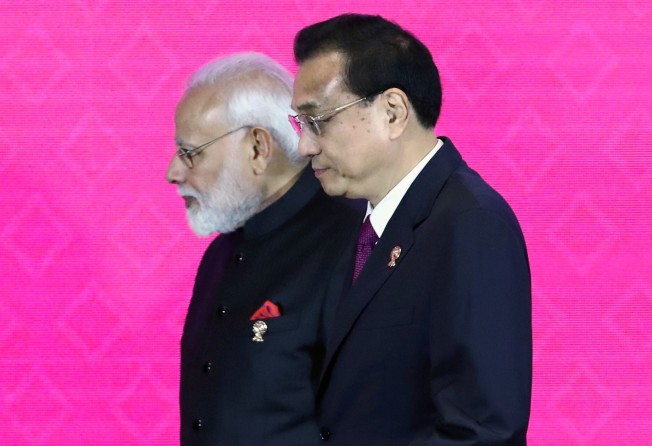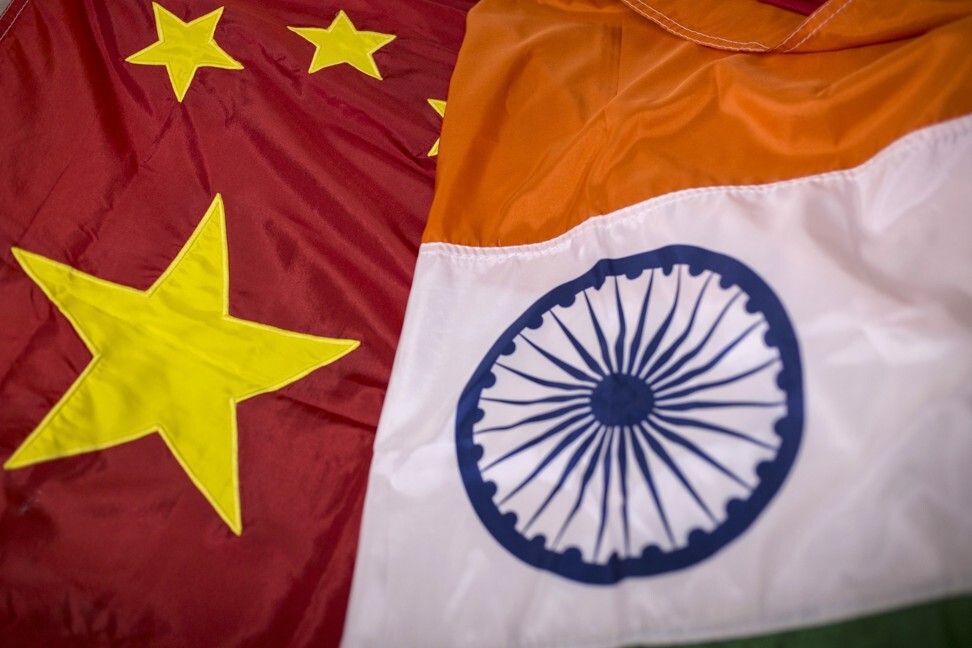China-India border clash spills over into trade, another obstacle keeping New Delhi from RCEP
- Regional economic partnership had hoped to bring India back into the fold, but June 15 skirmish overshadows India’s trade grievances
- New Delhi has started measures to punish China economically, including stepping up goods inspections and halting car plant deal

The China-India border row could close the door on New Delhi rejoining the Beijing-backed Regional Comprehensive Economic Partnership (RCEP), analysts say, as the conflict spills over into trade and investment.
China and the 14 other countries involved in the deal had pledged to address India’s outstanding grievances after New Delhi pulled out of negotiations last November, leaving hope that it might rejoin.
But the bloody clash between Indian and Chinese troops in the Galwan Valley on June 15 has led to growing calls in India to boycott Chinese goods and to bring in policy moves that would punish Beijing on trade.
“The border situation will impact the entire spectrum of activity between India and China,” said Madhav Nalapat, a professor of geopolitics at India’s Manipal Academy of Higher Education.
“When it comes to signing RCEP, after June 15 this seems like too big an ask.”
India pulled out of the agreement in November following rising concerns from domestic producers who feared they would be undercut by the inflow of Chinese goods. But the remaining 15 members agreed to sign the deal by the end of this year, and to further consult India over its objections.
Minister of Commerce and Industry Piyush Goyal said in January that India had pulled out of the agreement in part because of “very serious concerns” about China, saying its “ecosystem was locked down [with respect to] fair trade practices with other countries”.
Still, even without India, the agreement is set to cover nearly a third of the world’s population across 15 countries in Asia, including the 10 Asean nations, plus Australia, China, Japan, South Korea and New Zealand.
On Tuesday, trade negotiators from the remaining RCEP countries pledged to finish the deal by the end of the year and again called for India to rejoin.
“We believe that India’s participation in RCEP would contribute to the advancement and prosperity of the region. We therefore wish to emphasise that the RCEP remains open for India,” the countries said in a joint statement at the end of their meeting.
Tu Xinquan, a professor at the University of International Business and Economics in Beijing, said he believed that beyond the recent border conflict, India was not prepared for the international competition that the deal would bring to its markets.
“The agreement is not about China, or with China,” he said. “I think the other countries have accepted the reality that India will not rejoin.”
For India, trade and investment with China have been dealt big blows following the clashes and amid growing calls for the boycott of Chinese goods.
News outlet India Today reported that starting on Monday, Indian ports had stepped up inspections of Chinese goods, which had slowed imports, though no official ban had been put in place.
On the same day, officials in Maharashtra announced that the state had halted a US$500 million deal for China’s Great Wall Motor car plant, saying it would wait for clarification from the federal government, according to Reuters.
On Tuesday, India made it mandatory for sellers to mention the country of origin on Government e-Marketplace, the state-run e-commerce platform, although it did not mention China specifically.

On Thursday, Bloomberg reported that India planned to impose stringent quality control and higher tariffs on imports from China, citing people with knowledge of the matter.
The state-run Bureau of Indian Standards was finalising tougher norms for at least 370 products to ensure that items that could be locally produced were not imported, the people said, asking not to be identified.
The products included chemicals, steel, electronics, heavy machinery, furniture, paper, industrial machinery, rubber articles, glass, metal articles, pharmaceutical, fertiliser and plastic toys.
There were also discussions being held to raise import duty on products including furniture, compressors for air conditioners and car components, they said.
Additional reporting by Reuters and Bloomberg